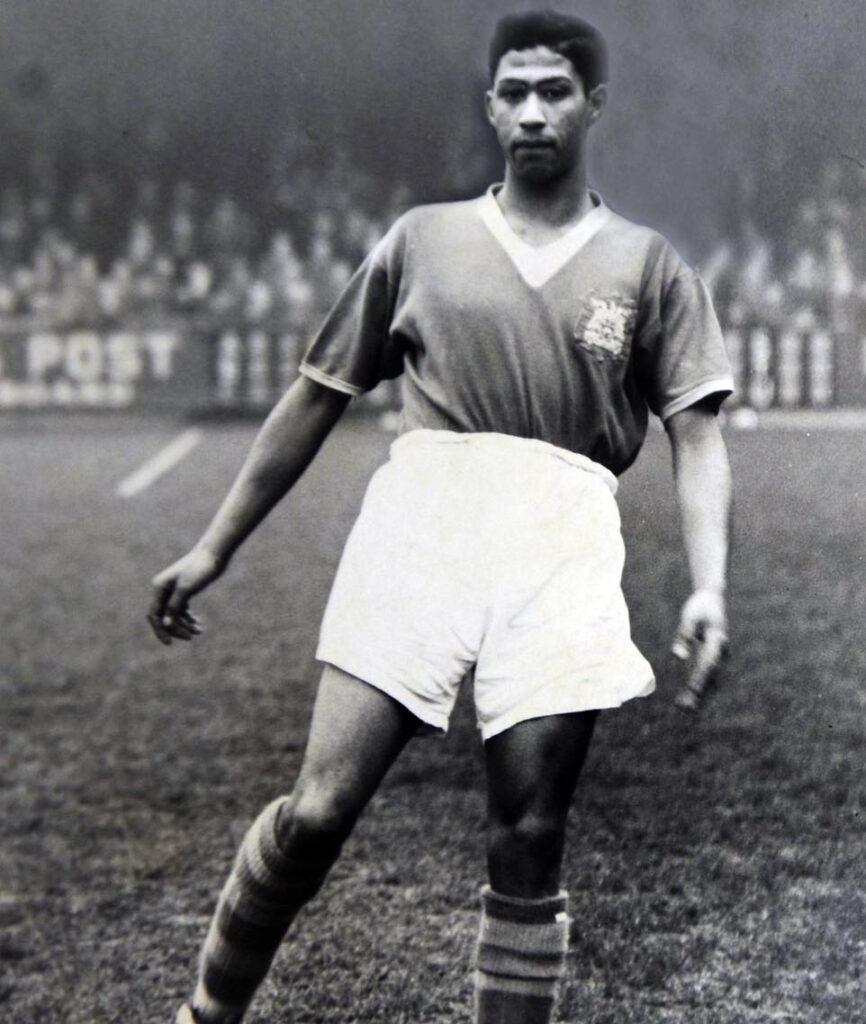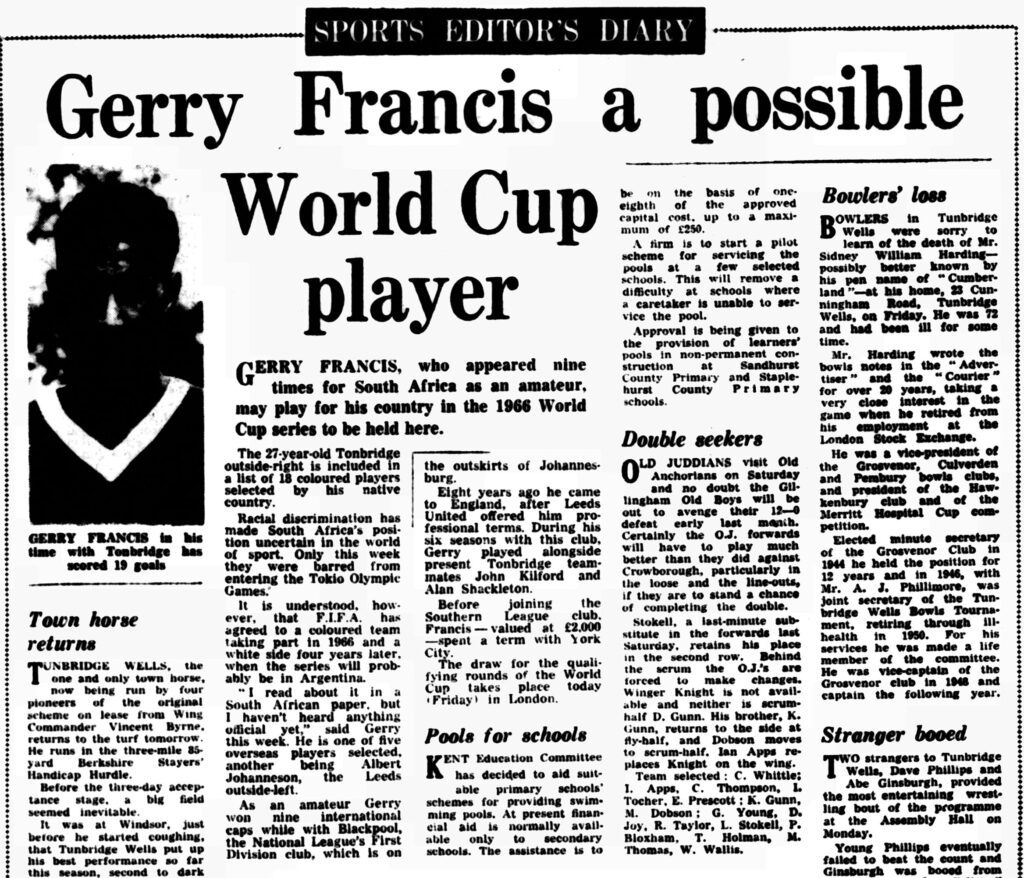
Gerry Francis, the first black player to represent Leeds United and a pioneer for South African footballers abroad, has died at the age of 91.
His death marks the passing of a quiet revolutionary, a man whose impact reached far beyond the touchline, although his passing was barely mentioned in the country of his birth.
Born in Johannesburg in 1933 to African and Asian parents, Francis grew up in apartheid-era South Africa, where his talent was shaped in the segregated leagues of the time.
“We couldn’t do anything else,” he recalled in The Athletic in 2020. “Those were the rules so we accepted them. It’s like I said, a load of bull, but nothing we could change back then.”
His grounding came largely in the mixed-race leagues, though he credited black African players for his footballing education: “I learned my football from them.”
It was through the intervention of an Indian friend – “an Indian guy writing to an English club to get a black guy a trial,” Francis once joked – that he found his way to Leeds United in 1957. He paid for his own trip to England and arrived without a guarantee of a contract. He simply waited at the gate, hoping for a chance. Yet the risk paid off.
After a dazzling reserve performance, including a memorable duel with Blackpool’s Bill Perry, Francis earned a full-time deal. That encounter, he later said, shocked the media: “Bill turned to the journalists who were looking at us and said, ‘In South Africa I’d be arrested for this.’ It was true.”

At a time when English football was overwhelmingly white, Francis’s signing was nothing short of groundbreaking. Often mistakenly overlooked in favour of Lucas Radebe, Francis was in fact the first South African (and the first black player) to turn out for Leeds United’s first team.
He made just under 60 appearances over five years at the club, a tally some, including Francis himself, believed was kept low due to racial prejudice. “Inferior players got in first,” he said. “I think being black was the problem. There weren’t many clubs with two non-white players.”
Still, Francis forged strong relationships at Elland Road, notably with Albert Johanneson, another South African, who would later become one of the first black players to feature in an FA Cup final. “When he first came, I took him in hand and showed him the ropes,” Francis recalled. “He needed some help.”
After leaving Leeds, Francis joined York City and then Tonbridge Angels, where he described his time as the happiest of his career. Eventually, he settled in Mississauga, Canada, with his wife Anna, with whom he shared over 50 years of marriage. Johanneson was best man at their wedding.
In his later years, Francis looked back with humility and humour on a life marked by quiet defiance. “I didn’t feel anybody in England or anyone at Leeds ever told people what we brought to the country,” he said. “English football wasn’t doing the 4-2-4. It was more like a South African system.”
Francis passed away remembered by Leeds United as “a trailblazer” whose “contribution to the club will never be forgotten.” That sentiment was echoed by the wider footballing world, as tributes poured in for a player who opened doors for generations to come.








One Response
My brother Amir was a close friend of Gerry & his family.I wish to
send condolences to his wife and family on
his behalf. I visited their home in
London numerous time with Amir. I don’t have their contact details in
ONTARIO